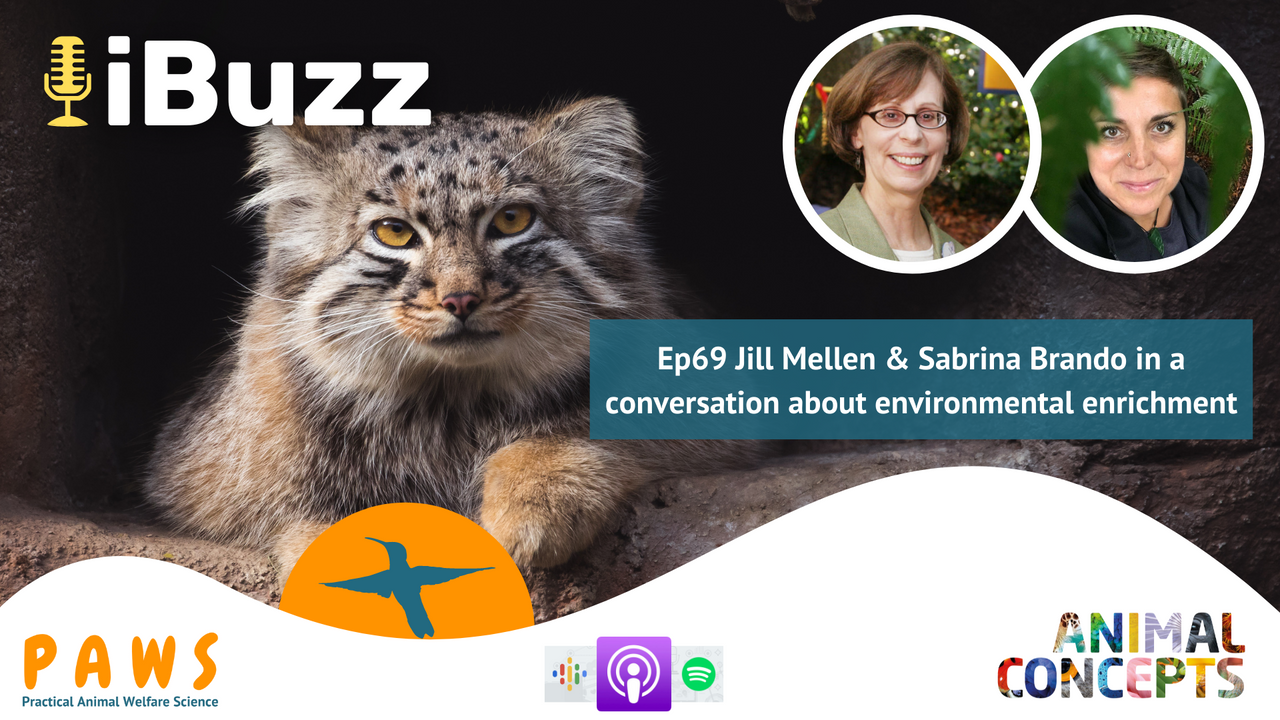Ep69 Jill Mellen & Sabrina Brando in a conversation about environmental enrichment

Dr Jill Mellen worked as the Education and Science Director at Disney’s Animal Kingdom and while now retired from this position, she is still very active in all kinds of projects! She has worked in the zoo and aquatic field for over three decades, with expertise in animal welfare. As such, in 2021, Jill received a lifetime achievement award for her work in animal welfare from the Association of Zoos and Aquariums.
Jill shares with us that beyond having a dog, her family had no interest in animals. Instead, Jill was inspired by her neighbours Velma and Karen who owned a horse. She went on to university to study for a BSc in Biology then an MSc in Animal Behaviour. Whilst studying, she acquired a job at Miller Park Zoo, Bloomington, Illinois where she worked with children and farm animals. This sparked her passion for zoo-based careers. Progressing from there, after her MSc Jill was hired to participate in environmental engineering and to train and supervise undergraduates at Oregon Zoo. Jill then asked Sabrina how she gained her passion. Sabrina refers to her love of nature and bird watching, despite being allergic. She dropped out of school to work with aquatics and marine mammals. This stirred her love of learning more about animal behaviour. Both Jill and Sabrina discuss how this drive caused them to pursue a PhD.
Jill then discussed working with Hal Markowitz at Oregon Zoo, and how he and the team did not realise how ground-breaking any of their work in environmental enrichment was. She summarised their work as behavioural encouragement through operant conditioning. Jill described one example with Baloo the Mandrill utilising a reaction time video game in which they compete with the public. When Baloo won, he would receive a feed reward. Jill and Sabrina then discussed the controversy of artificial versus natural enrichments. They then continue to discuss the variations of words concerning welfare which could result in miscommunication. So, Jill recommends before each discussion utilising a word, it should be defined in the discussion. This led Sabrina to talk about incorporating different perspectives of people from different industries to benefit the project. Jill also explains the origins and the effectiveness of SPIDER, a scientific framework used to implement and evaluate environmental enrichment.
Jill concludes by emphasising the importance of choice and control in enclosure design, as we have placed them in an enclosure, we have removed a lot of choices. Therefore, it is up to us to provide some back based on their natural history.
Learn about SPIDER HERE
Listen on your favourite player or directly HERE
Become a member of PAWS HERE

